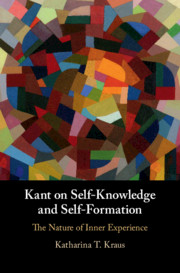Book contents
- Kant on Self-Knowledge and Self-Formation
- Kant on Self-Knowledge and Self-Formation
- Copyright page
- Dedication
- Epigraph
- Contents
- Figures
- Table
- Preface
- Introduction From Inner Experience to the Self-Formation of Psychological Persons
- Part I The Appearing Self
- Part II Self-Consciousness and the “I” of the Understanding
- 3 The Form of Reflexivity and the Expression “I think”
- 4 The Conditions of Self-Reference
- Part III The Human Person and the Demands of Reason
- Bibliography
- Index
4 - The Conditions of Self-Reference
from Part II - Self-Consciousness and the “I” of the Understanding
Published online by Cambridge University Press: 01 December 2020
- Kant on Self-Knowledge and Self-Formation
- Kant on Self-Knowledge and Self-Formation
- Copyright page
- Dedication
- Epigraph
- Contents
- Figures
- Table
- Preface
- Introduction From Inner Experience to the Self-Formation of Psychological Persons
- Part I The Appearing Self
- Part II Self-Consciousness and the “I” of the Understanding
- 3 The Form of Reflexivity and the Expression “I think”
- 4 The Conditions of Self-Reference
- Part III The Human Person and the Demands of Reason
- Bibliography
- Index
Summary
Chapter 4, “The Conditions of Self-Reference”, examines two ways in which one can conceptually represent oneself in judgements, in light of the results of the Paralogisms (in the Transcendental Dialectic of the first Critique). The logical “I” defines the way in which any thinking subject must represent itself in thought, and hence its logical predicates are conditions of I-judgements in general. The psychological “I” is used to represent oneself in empirical I-judgements, viz. inner experience, and under the temporal conditions of perception (which were derived in Chapter 2). Yet a close reading of the Paralogism of Personal Identity, and other passages, reveals that the principle of persistence cannot be applied in inner experience. The category of substance, therefore, requires a different kind of sensible explication to capture the trans-temporal unity of persons.
Keywords
- Type
- Chapter
- Information
- Kant on Self-Knowledge and Self-FormationThe Nature of Inner Experience, pp. 130 - 168Publisher: Cambridge University PressPrint publication year: 2020



